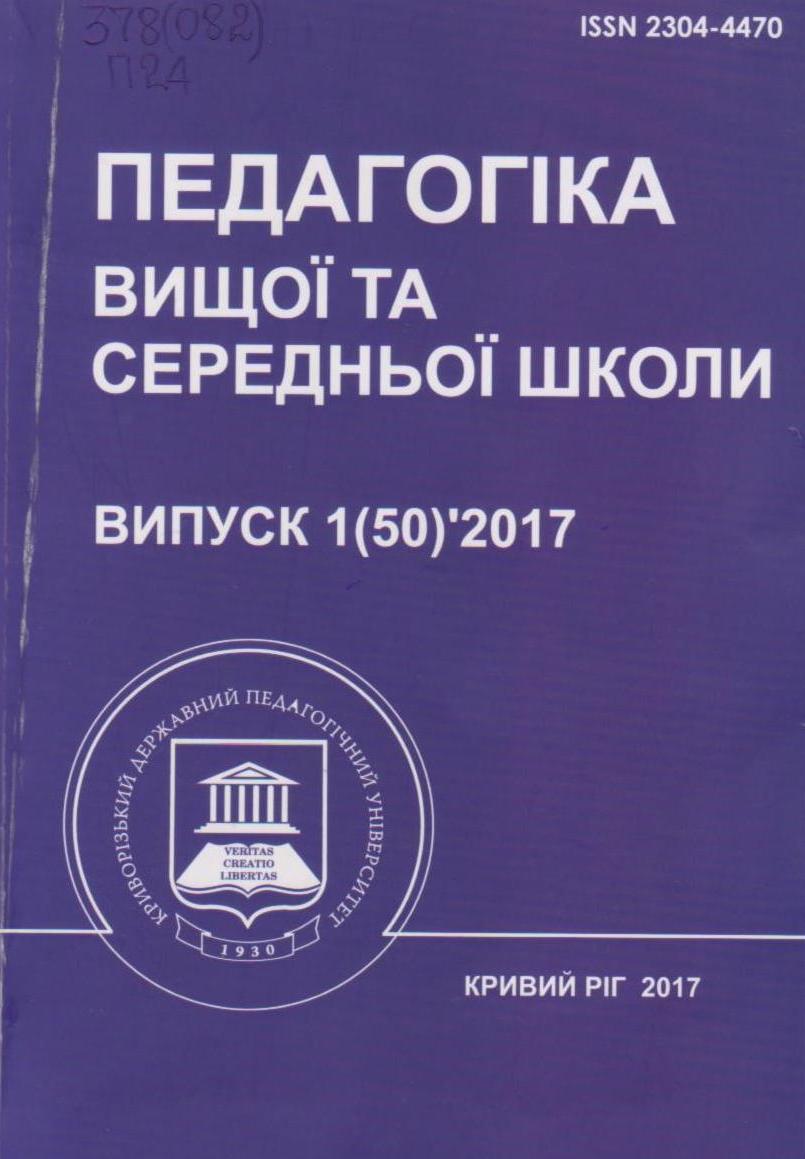Сoncept models of pupils' educational and mathematical activity
DOI:
https://doi.org/10.31812/pedag.v50i0.1296Keywords:
concept, model, structure, educational mathematical activity of pupils, mathematical ability, personality, developmental education, learning mathematics, interestAbstract
The purpose of the article is the development of science-based concepts of models of pupils’ educational and mathematical activity. For this aim a theoretical analysis was made and methodological principles of personal and developmental education were singled out. The main conceptual theses were stated which embodied the idea of scientific development of the individual during a holistic implementation of triplets: interest ↔ activity ↔ skills; interest ↔ activity ↔ talent; interest ↔ activity ↔ genius. According to the results the structure and system analysis of educational components of mathematical activity have been presented, which provide a practical process of learning mathematics. Solving mathematical problems of teaching is carried out by means of the third type of orientation in the job, which involves the theoretical content and operations (analysis, synthesis, abstraction, planning and reflection). The application problems are solved by mathematical modeling. Teaching mathematical models are created, which outline the generalized methods of typical mathematics problems solving. It has been found that developmental continuity should be the essential characteristics of the learning process, and developing continuity principle becomes a fundamental idea in the theory of developmental education. It is proved that the structure of task developmental education mathematics program serves educational mathematical activity, which implemented the principle of developing succession: in a certain hierarchy of tasks on different levels of content-theoretical generalization. It is determined that notable combined with educational and development mathematical activity, development provide the interest of pupils in studying mathematics. Formula: interest in studying mathematics ↔ mathematical educational activities ↔ mathematical abilities (mathematical genius, mathematical talent) are fundamental in the theory of developmental education mathematics. It is concluded that the integrity of the educational mathematical activity of pupils ensured unity of motivational, tasks, constructive, realizable and reflective components. Prospects for further research include the question of specificity of methodical system of developing teaching mathematics in the secondary school, in particular the characteristics of its procedural and evaluative components.
Downloads
References
Давыдов В. В. Теория развивающего обучения / В. В. Давыдов. – Москва : Интор, 1996. – 544 с.
Дусавицкий А. К. Развитие личности в учебной деятельности / А. К. Дусавицкий. – Москва : Дом педагогики, 1996. – 204 с.
Леонтьев А. Н. Деятельность. Сознание. Личность / А. Н. Леонтьев. – Москва : Педагогика, 1975 – 304 с.
Методика навчання і наукових досліджень у вищій школі : [навч. посіб.] / С. У. Гончаренко, П. М. Олійник, В. К. Федорченко та ін. – Київ : Вища шк., 2003. – 323 с.
Пиаже Ж. Структуры математические и оперативные структуры мышления / Ж. Пиаже // Преподавание математики. – Москва : Учпедгиз, 1960. – 316 c.
Рибалка В. В. Психологія розвитку творчої особистості : [монографія] / В. В. Рибалка. – Київ : Вища школа, 1996. – 362 с.
Савчин М. В. Вікова психологія : [навч. посіб.] / М. В. Савчин, Л. П. Василенко. – Київ : Академвидав, 2006. – 360 с.
Семенець С. П. Методологія і теорія розвивального навчання математики : [монографія] / С. П. Семенець. – Житомир : Вид-во О. О. Євенок, 2015. – 236 с.
Семенець С. П. Системотвірне поняття та особливості змісту розвивального навчання математики / С. П. Семенець // Педагогіка вищої та середньої школи : зб. наук. праць. – Кривий Ріг, 2015. – Вип. 46. - С. 207–212. DOI: https://doi.org/10.31812/educdim.v46i0.2532
Талызина Н. Ф. Теория поэтапного формирования умственных действий и проблемы развития мышления / Н.Ф. Талызина // Советская педагогика. – 1967. – № 1. – С. 28–32.
Downloads
Published
Issue
Section
License
Copyright (c) 2017 Сергій Петрович Семенець

This work is licensed under a Creative Commons Attribution 4.0 International License.




